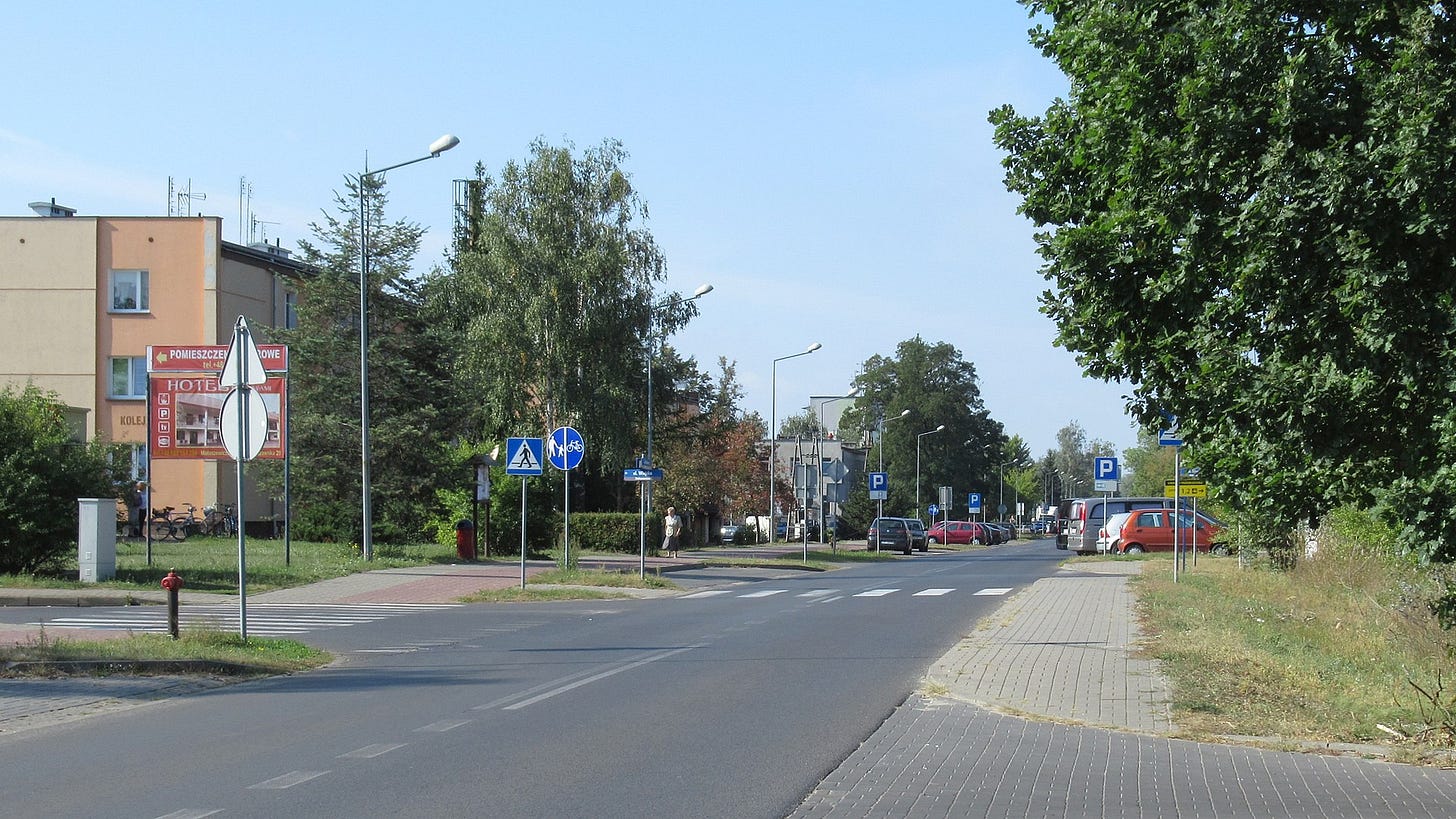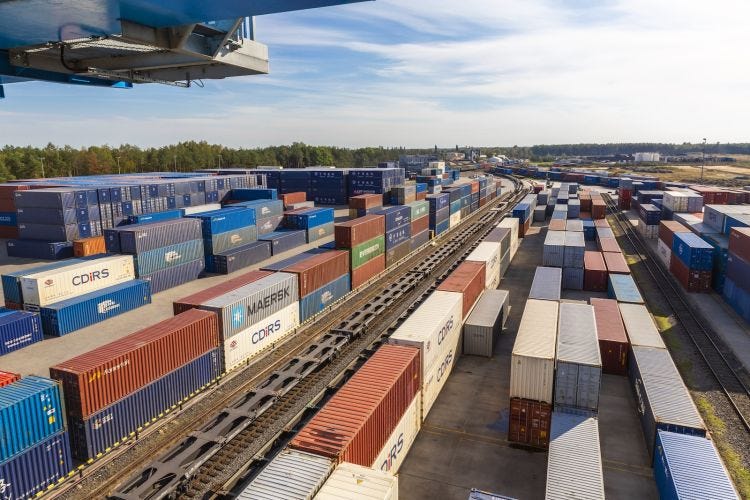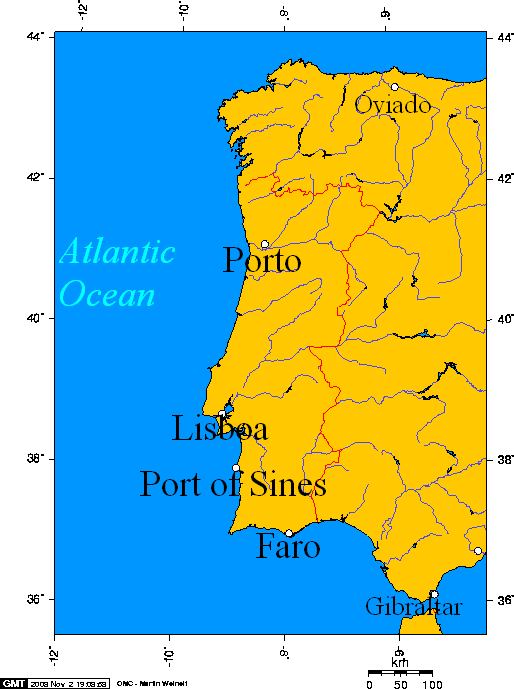😡 No AI Chips for You: America’s New Line in the Sand
The AI race traps the EU in the crossfire
The U.S. just shattered Poland’s trust in their decade-long partnership.
Poland has been one of America’s closest allies in Europe since 1989:
It joined the 2003 invasion of Iraq. It maintained strong ties with the U.S. during the Trump first administration. Recently it even declared interest in hosting U.S. nuclear weapons.
Yet, none of that stopped the Biden Administration from cutting Poland off from one of the hottest commodities three days ago: AI chips.
The “Framework for Artificial Intelligence Diffusion” tightens U.S. control over the sale of chips made by Nvidia and its peers. It establishes a three-tiered system of restrictions:
Tier one: A select group of eighteen allies will maintain unrestricted access to U.S. chips. These include countries such as Australia, Canada, New Zealand, the United Kingdom, Japan, South Korea, and Taiwan.
Tier two: Companies face caps on computing power that can go to any one state: around 50,000 advanced AI chips through 2027. However, this cap can double if the country negotiates an agreement with the U.S. Poland falls into this tier.
Tier three: Countries like Russia, China, North Korea will be effectively banned from importing chips.
How Could They?
Poland has reacted with indignation. Deputy Prime Minister and Minister of Digital Affairs Krzysztof Gawkowski complained on X:
[The U.S.’ decision is] incomprehensible and is not based on any substantive reasons.
Piotr Sankowski, a computer scientist at the University of Warsaw, wrote:
I do not understand how in this whole geopolitical configuration we found ourselves in the second category of countries.
Media network Euractiv commented:
It is unclear why Belgium was designated a key ally exempt from measures while Poland was not.
It’s true that the U.S. did not provide an explanation for restricting chip supplies to Poland. However, we suspect the answer lies in a small Polish village called Małaszewicze (population: 1,664).
A little bit of pattern recognition reveals why.
The Underprivileged 17
Poland isn’t the only EU member state subject to these restrictions. The other 17 targeted countries are Portugal, Luxembourg, Estonia, Latvia, Lithuania, Czech, Slovakia, Austria, Hungary, Romania, Slovenia, Croatia, Bulgaria, Greece, Cyprus, Malta.
Only Germany, France, Belgium, Spain, Italy, Ireland, the Netherlands, Sweden, Denmark and Finland are exempt.

This brings us back to the village of Małaszewicze.
Despite it’s small size, the village is Poland’s largest rail hub. It’s also the most important transfer station for train shipments from China.
The first regular freight train between China and Poland arrived in July 2024, launching the "Guangzhou International Port - Warsaw" line. This development has positioned Poland as a key gateway for China into Europe.
According to the Global Times, Poland has become China's largest trading partner in Central and Eastern Europe. Additionally, China is now Poland’s largest economic partner in Asia.
A similar issue is unfolding at Europe’s western border in Portugal.
Situated on the Atlantic coast, the deep-water Port of Sines ia strategically located for transatlantic trade and serves as another gateway into Europe.
A brief by the European Institute for Asian Studies describes the port as “an economic battleground for Chinese and US influence in Europe.”
Portugal appears to welcome Chinese investments. As Portugal Business News reported in April 2023:
Portugal’s Ambassador to China, Paulo Jorge Nascimento, stated that China’s Maritime Silk Road should reach Portugal through the port of Sines.
The “gateway into Europe” theme resurfaces with Luxembourg.
The small country might appear to be a surprising candidate for America’s AI chip restrictions. However, Luxembourg is China’s banking gateway into the EU.
Chinese banks have been building an extensive network of branches and subsidiaries across the EU, all managed from their European headquarters in Luxembourg.
The country’s regulatory environment enables them to bypass specific constraints in other EU member states—particularly when facilitating investments by Chinese corporations in the EU.
You’re Either With Us or With Them
It’s no coincidence Poland, Portugal, Luxembourg—and indeed all targeted EU members—are part of China’s Belt & Road Initiative (BRI).
Under the BRI, Chinese banks and companies seek to fund and build roads, power plants, ports, railways, 5G networks, and fiber-optic cables around the world.
Naturally, the U.S. opposes the BRI. Here’s how the Air Force’s Air University describes it:
The BRI will serve as a mechanism for weaponizing the global supply chain and gaining technology dominance. It will position China in the center of Eurasian trade markets, leading to unequal market leverages in the region and driving other regional countries to submit to China’s interests. China will gain greater capacity to affect regional actors’ political trajectories in a growing CCP sphere of influence centered on China’s values.
The conclusion is simple. The U.S. has weaponized AI chips to draw a line in Europe: you’re either with us or with China.
The EU Could’ve Seen This Coming
This isn’t first time the U.S. wields a carrot-and-stick approach—offering technology to allies who align with its policies while penalizing those who deepen ties with China.
In 2023, Biden expanded export controls to include AI chips, targeting Middle Eastern countries like the UAE and Saudi Arabia. Washington granted limited access only after months of negotiations, resulting in Emirati company G24 to divest from Chinese firms.
The U.S., however, didn’t enact blanket restrictions on all countries involved in the BRI this time.
Italy isn’t targeted, despite formally endorsing the BRI. That’s most likely because its endorsement is limited to a non-binding Memorandum of Understanding with China, without identifying specific projects.
In any case, these restrictions are about to throw a wrench into the EU’s AI ambitions. According to Politico:
The move could also spell trouble for Greece and Luxembourg, which were each picked by the European Commission to install an AI-optimized supercomputer on which startups and researchers could train their cutting-edge models.
All the EU could manage in response was a weak joint statement from Commissioners Henna Virkkunen and Maroš Šefčovič:
We are concerned about the US measures adopted today restricting access to advanced AI chip exports for selected EU Member States and their companies.
We believe it is also in the US economic and security interest that the EU buys advanced AI chips from the US without limitations: we cooperate closely, in particular in the field of security, and represent an economic opportunity for the US, not a security risk.
We have already shared our concerns with the current US administration and we are looking forward to engaging constructively with the next US administration. We are confident that we can find a way to maintain a secure transatlantic supply chain on AI technology and super computers, for the benefit of our companies and citizens on both side of the Atlantic.
The Commission’s confidence in securing an AI supply chain flies in the face of the brutal geopolitical realities it’s up against. After Trump’s inauguration, it’s likely he’ll turn the screws tighter unless the EU bends its China policy to his liking.
Remember how tier-two countries can double their chip cap if they reach an agreement with the U.S.?
Since all European tier-two countries are members to the BRI, this sends a clear message from the White House: Washington wants them to loosen their ties to China.
We believe these countries will need to make significant concessions, straining their relationship with China, to give the EU as a whole a shot at becoming relevant in the AI race.
Hosting data centers on EU-territory is a matter of sovereignty and compliance with strict data privacy laws. AI chips are essential to achieving this.
However, the EU is also dependent on critical inputs from China: turbine parts, optical equipment, and the chemical precursors to produce drugs and batteries for electric cars to name just a few.
For the EU, it’s a tightrope walk.
In some cases, the U.S. might be satisfied with the EU backing away from pending deals, like China’s involvement in the Port of Sines. In other cases, it may demand countries to tighten regulations, such as Luxembourg’s banking laws.
Yet, the fact that EU bureaucrats didn’t see this coming—more than two years after ChatGPT sparked the AI race—is embarrassing.
Tech Commissioner Henna Virkkunen recently declared, “I want Europe to be an AI continent.”
Good luck with that, Commissioner.








Great article!
Do you have any thoughts on the long-term impact of that?
My concern is that actions like this (new US AI chips control) make the case for BRICS even stronger. Beyond AI chips export control, we are essentially saying to other countries, "You are either 100% with us and do what we tell you, or we punish you." And we are saying that to our closest allies.
If I were a country friendly or neutral to the US, I would ask myself, "If the US does stuff like that to its closest allies, do I want to be part of the US club, or wouldn't the BRICS club be better?"